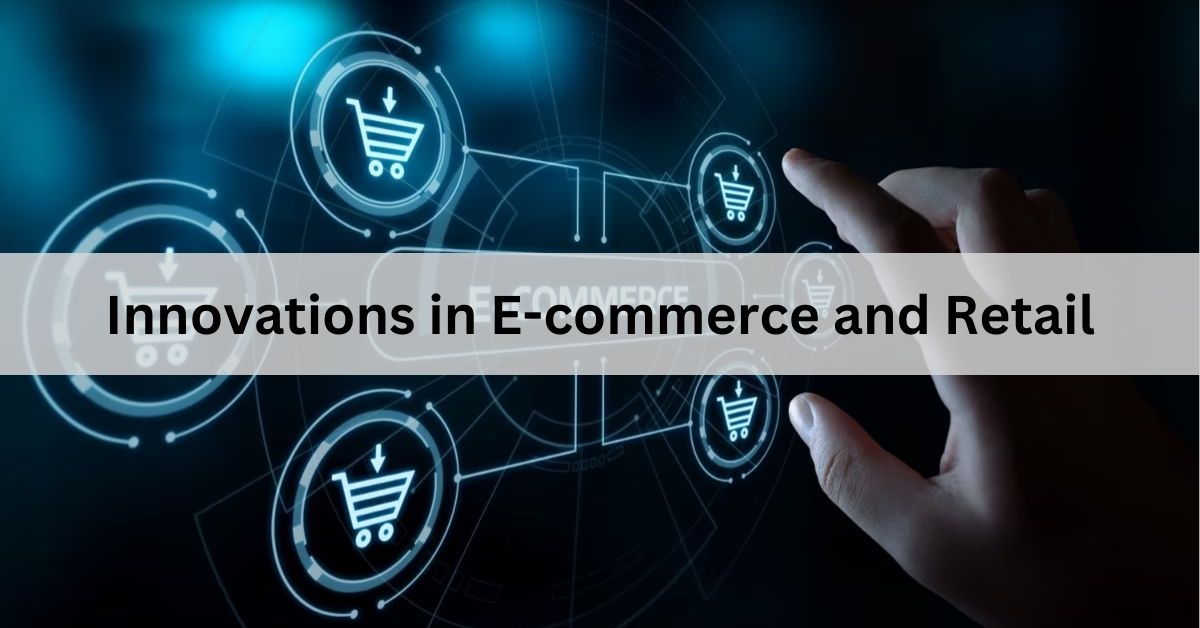In the fast-paced world of e-commerce and retail, staying ahead means embracing technological advancements that enhance customer engagement, streamline operations, and drive sustainable growth. This comprehensive guide explores a range of innovative strategies and technologies transforming the retail landscape, from omnichannel integration and personalized customer experiences to AI applications and sustainability initiatives.
Omnichannel Integration: Seamlessly Connecting Online and Offline Experiences
Omnichannel integration is revolutionizing retail by breaking down barriers between physical stores, online platforms, mobile apps, and social media channels. By offering a unified shopping experience, retailers can cater to diverse consumer preferences and behaviors. Customers enjoy the flexibility of browsing products online, making purchases via mobile devices, and picking up or returning items at brick-and-mortar locations. This approach not only enhances convenience but also fosters brand loyalty through consistent and personalized interactions across multiple touchpoints.
Personalized Customer Experiences: Tailoring Interactions for Enhanced Engagement
Personalization has become a cornerstone of modern retail strategies, enabling businesses to create unique and relevant experiences for each customer. Leveraging data analytics and AI algorithms, retailers can analyze customer behaviors, preferences, and purchase histories to deliver personalized recommendations, targeted marketing campaigns, and customized promotions. Personalized experiences extend beyond product recommendations to include personalized emails, loyalty rewards, and dynamic website content that adapts to individual interests in real-time. By anticipating customer needs and desires, retailers can strengthen customer relationships and drive higher conversion rates.
Supply Chain Optimization: Enhancing Efficiency and Agility
Efficient supply chain management is crucial for meeting consumer demands while minimizing operational costs and environmental impact. Innovations such as predictive analytics, IoT sensors, and blockchain technology enable retailers to optimize inventory levels, improve demand forecasting accuracy, and streamline logistics operations. Real-time data insights facilitate proactive decision-making, enabling businesses to respond swiftly to market fluctuations and maintain high service levels. By enhancing supply chain transparency and efficiency, retailers can reduce lead times, minimize stockouts, and enhance overall operational agility.
Mobile Commerce Trends: Empowering Consumers on the Go
Mobile commerce continues to gain momentum as smartphones and tablets become integral to the shopping experience. Retailers are optimizing their websites and mobile apps for mobile-friendly navigation, responsive design, and seamless checkout processes. Mobile commerce trends include the adoption of mobile wallets, integration of in-app payment options, and location-based marketing strategies that deliver personalized offers based on customer proximity. Mobile technologies not only cater to the growing segment of mobile-first consumers but also enable retailers to capture impulsive buying behaviors and drive incremental sales.
AI and Machine Learning Applications: Transforming Retail Intelligence
Artificial intelligence and machine learning are reshaping retail operations by automating repetitive tasks, enhancing data analytics capabilities, and improving decision-making processes. AI-powered chatbots provide round-the-clock customer support, while machine learning algorithms analyze vast datasets to predict consumer preferences and optimize inventory management. Visual search technology allows customers to find products using images captured through their smartphones, while recommendation engines suggest personalized product selections based on browsing history and previous purchases. By harnessing AI capabilities, retailers can deliver hyper-personalized experiences, reduce operational costs, and drive revenue growth through targeted marketing initiatives.
Payment Gateway Security: Ensuring Trust and Reliability
Securing online payment transactions is critical to maintaining customer trust and safeguarding sensitive financial information. Retailers invest in advanced encryption protocols, tokenization technologies, and multi-factor authentication methods to protect against data breaches and fraudulent activities. Compliance with Payment Card Industry Data Security Standard (PCI DSS) ensures that payment processing systems adhere to stringent security standards and protocols. By prioritizing payment gateway security, retailers can mitigate risks, prevent revenue loss due to fraudulent transactions, and uphold their reputation as a trusted brand in the competitive e-commerce landscape.
Sustainability in Product Packaging: Meeting Environmental Expectations
Consumer awareness of environmental sustainability is driving retailers to adopt eco-friendly packaging solutions that minimize environmental impact and support corporate sustainability goals. Innovations include biodegradable materials, recyclable packaging designs, and minimalist packaging practices that reduce waste and carbon footprint. Sustainable packaging not only appeals to eco-conscious consumers but also aligns with regulatory requirements and corporate social responsibility commitments. By adopting sustainable packaging practices, retailers can differentiate their brand, attract environmentally conscious consumers, and contribute to a more sustainable future.
Augmented Reality (AR) for Retail: Enhancing Shopping Experiences
Augmented reality (AR) technology is revolutionizing the way consumers interact with products and brands by merging digital and physical environments. Retailers leverage AR applications to offer immersive shopping experiences, allowing customers to visualize products in real-world settings through AR-enabled devices. Virtual try-on experiences for apparel and accessories, interactive product demonstrations, and AR-powered navigation within stores enhance engagement, reduce purchase hesitation, and increase customer satisfaction. By integrating AR technology into their retail strategies, businesses can differentiate their offerings, drive online and offline sales, and create memorable brand experiences that resonate with tech-savvy consumers.
Conclusion: Embracing Innovation for Sustainable Growth
Innovations in e-commerce and retail are reshaping the industry landscape, empowering retailers to deliver seamless customer experiences, optimize operations, and drive sustainable growth. By embracing omnichannel integration, personalized customer experiences, supply chain optimization, mobile commerce trends, AI applications, secure payment gateways, sustainability initiatives, and AR technology, retailers can stay ahead of market trends and meet evolving consumer expectations. As technological advancements continue to redefine retail dynamics, businesses that prioritize innovation, adaptability, and customer-centricity will position themselves for long-term success in the competitive global marketplace.

























+ There are no comments
Add yours